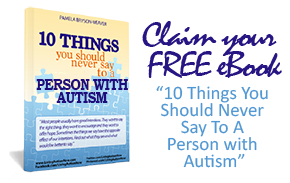Meet Kimberly Arsenault, an accredited music therapist living in Fredericton, New Brunswick. Receiving a Bachelor of Music Therapy from Acadia University in 2012, in addition to a Bachelor of Arts with first class honors in Psychology from UNB Fredericton in 2008, she is a music therapist accredited (MTA) with the Canadian Association for Music Therapy.
What is music therapy? Music therapy, as defined by the Canadian Music Therapy Association, “…is the skillful use of music and musical elements by an accredited music therapist to promote, maintain, and restore mental, physical, emotional, and spiritual health…used in the therapeutic relationship to facilitate contact, interaction, self-awareness, learning, self-expression, communication, and personal development.”
Music therapy can be used with clients from across the lifespan, from the neonatal intensive care unit (NICU) to those in palliative care. One population that music therapy has been found to be very beneficial for, are those individuals who have received a diagnosis of autism or who are on the autistic spectrum. Some of the most common care concerns for those with autism are in the social, communicative, and behavioral areas. Music therapy can help in addressing these issues, in addition to others. The music therapist would work in collaboration with parents and if applicable, other members of the care team, in order to help them reach established goals through the use of music and musical elements.
Perhaps the individual with autism may experience difficulty with speech – the music therapist can use the structure and predictability of a song in order to show the child their role in a song. Through this, it gives them confidence in their contribution to the music. This can then become transferable to outside of the music therapy environment and into everyday life.
Music is an important part of play – it is natural to see individuals moving, dancing and singing along with music. Music therapists can also use music in order to help autistic individuals express themselves and communicate with others. We can focus on taking turns, listening skills, understanding direction, participating in a group, and waiting. Music therapists can also use music therapeutically in order to teach everyday skills, such as brushing teeth, tying shoes, etc.
Music therapy is adaptable and is tailored to what the individual requires, is capable of at the time, and what their preferences are. The music therapy sessions work towards established goals for the individual.
Music therapists use a variety of different intervention techniques, such as the playing of instruments, improvisation, singing, the use of musical games, and listening to music. Music therapists can use common songs that are pre-composed (E.g., “Old MacDonald Had a Farm”), songs that have been composed specifically for music therapy. Music therapists are also trained to improvise songs based on the current situational need. Although the music therapist creates a session plan, they are prepared to be adaptable and flexible depending on the immediate scenario.
Below you will find links to music therapy research for those with autism. For more information on music therapy in general, you may visit the Canadian Association for Music Therapy (CAMT) website at: http://www.musictherapy.ca/en/ or the Atlantic Association for Music Therapy (AAMT) website at: http://atlanticmusictherapy.ca/index.php.
Here are some articles/videos describing further why music therapy is effective for those with autism:
http://www.huffingtonpost.com/ronna-kaplan-ma/music-therapy-autism_b_2007561.html
http://www.mewsicmoves.com/blog/5-reasons-why-music-therapy-is-effective-for-children-with-autism
If you are in the Fredericton and surrounding area and are interested in connecting with Kimberly, she can be reached at: kimberlyarsenaultmt@gmail.com.

